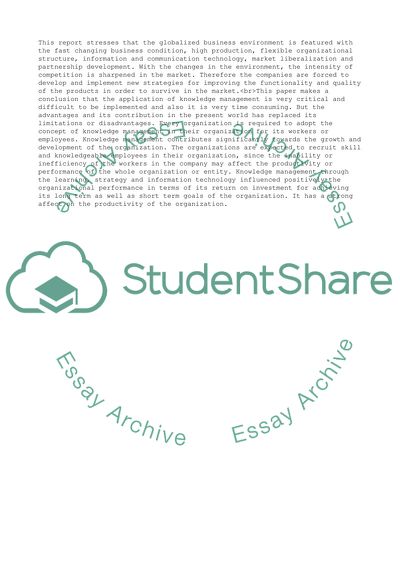Cite this document
(“The Effectiveness of Knowledge Management In Organizations Literature review”, n.d.)
Retrieved de https://studentshare.org/management/1697145-the-effectiveness-of-knowledge-management-in-organizations
Retrieved de https://studentshare.org/management/1697145-the-effectiveness-of-knowledge-management-in-organizations
(The Effectiveness of Knowledge Management In Organizations Literature Review)
https://studentshare.org/management/1697145-the-effectiveness-of-knowledge-management-in-organizations.
https://studentshare.org/management/1697145-the-effectiveness-of-knowledge-management-in-organizations.
“The Effectiveness of Knowledge Management In Organizations Literature Review”, n.d. https://studentshare.org/management/1697145-the-effectiveness-of-knowledge-management-in-organizations.


